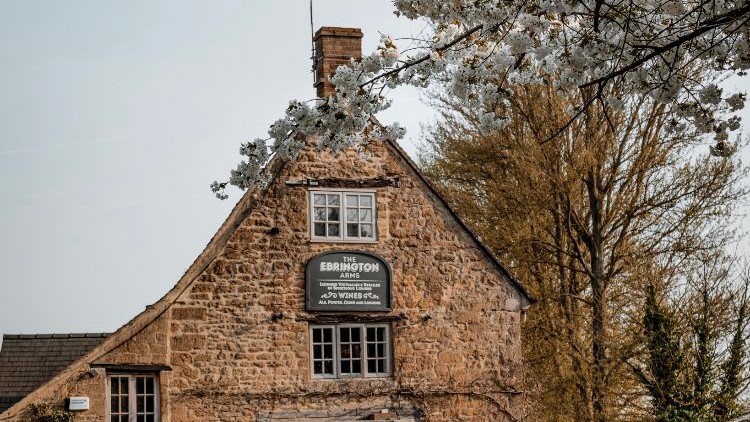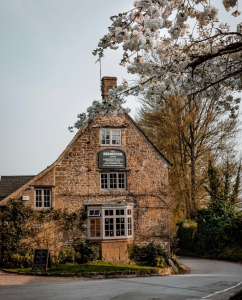#unitedwestand
Pubs without grants reaching ‘point of no return’

The Government’s Retail, Hospitality and Leisure Grant Fund (RHLGF) is only applicable to pubs with rateable values of up to £51,000. The threshold has meant almost 10,000 pubs have been left without grant funding, according to the Altus Group.
Trade bodies, including UKHospitality (UKH), the British Beer & Pub Association (BBPA) and the British Institute of Innkeeping (BII) have urged the Government to increase the support available for these sites.
BII chief executive Steven Alton said 20% of its licensee members have not had access to any grants and have consequently faced an “impossible task” of settling paying suppliers, initial staff wages and other overheads with zero income. Publicans have faced this predicament for more than 10 weeks now.
Alton added: “These are our locals, the hubs of our communities, providing vital employment and contributions to the local economy as all pubs do, but they have been left out in the cold. The only way for them to move forward is to take on additional debt just to see them through the closure period.”
Craig Bannister, the director of the Glen pub in Hythe, Southampton, Hampshire, said the lack of Government support means he has been left with no incentive to keep his business going.
He said: “I am trying to keep my local, wet-led, community pub from going under, but I am not losing my 30 years of work outside the pub trade to support a dinosaur in the future environment.
“The situation cannot persist whereby businesses that support local jobs and provide value to the local economy are allowed to fail because of red tape.”
The Broad Leys is one of only two pubs in Aylesbury, Buckinghamshsire, left out of the grant scheme because of its high rateable value. The situation has meant the pub has not been able to pay its suppliers and is facing doubts about taking staff off furlough to reopen this summer, according to operator Helen Wood.
She said: “We have been penalised for doing well in the past and being a successful business and paying everything like VAT over the years.
“It is worrying. We will only be able to tick over for the first few weeks then we will have to take stock. If people are still too frightened to come out or there’s a stage where people stay indoors again because they don’t have money or are worried about a second peak, we will have to go through a change of use.
“Staff have lost their confidence a bit and I have as well. We haven’t traded for over three months. You worry and feel a lack of confidence in the whole situation.”
The pub has taken on a Government loan that its operator says will be used on settling bills and then ensuring the pub is able to reopen.
One multi-site operator said she is facing a huge amount of accommodation refunds to process and expecting little profit for the whole of next year based on rebookings.
Claire Alexander, who oversees the Ebrington Arms and the Killingworth Castle in the Cotswolds, said she felt pubs have been unfairly treated in comparison to the support granted to other businesses.
She said: “We have been forced to close. Surely the grant system should have focused on businesses forced to close first and foremost, and are accumulating the most debt as a result?
“Why have grants been given to lots of businesses that have traded well throughout the crisis? Why have supermarkets been given rate relief when 9,000-plus closed pubs are still not getting any grant support? It needs sorting out now.
“Local village halls have received grants yet have no staff and negligible operating costs. Local butchers and food traders who have remained open and are trading well.
“I appreciate the grant system was implemented at pace but it is completely arbitrary and failing to help many businesses it was aimed at helping.”
Malcolm Sissons runs karaoke bar Woody’s in Sheffield city centre, South Yorkshire, and says despite trying to hold onto staff “it’s the end of the line”, and is preparing to let two employees go in order to protect the business.
He said: “We have been left out to dry. Nobody seems to want to know our case.”
Several operators, including Sissons, said they felt a spark of hope when hearing an additional pot of £617m would be made available to local councils to allocate to small businesses left out of the other grant schemes.
However, criteria for this funding states local authorities should prioritise this funding for businesses such as charity properties, bed and breakfasts that pay council tax not business rates, and regular market traders.
Job losses
Matthew Sims, the co-founder of the Raise the Bar campaign, which would like to see the grant threshold raised to £150,000, says the lack of support means many jobs could be at risk despite the Government’s furlough scheme as pubs reach “the point of no return”.
He said: “Businesses should not be penalised simply because of their rateable value – they are all equally important to our economy. We need them to survive. Without it, employees’ jobs will not be saved and the job retention scheme would have, in the long term, been futile.
“The job retention scheme is certainly welcome, safeguarding people’s livelihoods in the short term. What the Government has not considered, in our view, is the necessity to provide greater support and flexibility to the businesses that employ those on the furlough scheme.
“Businesses, certainly those with little access to finance, are left with little option at this stage but to consider closure because the financial support is not forthcoming. We appreciate that there are loans, in particular, the Bounce Back Loan system, but we cannot forget this is increasing the debt burden on many of these businesses at a time when costs are spiralling through lack of support from their landlords.”
• Read the latest digital edition of The Morning Advertiser – for free – by clicking here.









